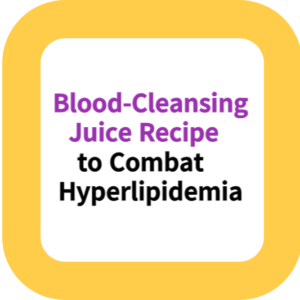The Best Porridge for Diabetes: Black Bean Onion Porridge
Welcome to our blog where we explore the intersection of traditional medicinal foods and modern dietary needs. Today, we’re excited to share a recipe for Black Bean Onion Porridge, a dish renowned for its health benefits, particularly in managing blood sugar levels.
This recipe transforms the humble black bean and onion into a luxurious porridge that’s not only easy to prepare but also packed with detoxifying properties and essential nutrients.
Ideal for diabetics and health-conscious individuals, this porridge exemplifies how simple ingredients can be elevated into a gourmet, health-supportive meal that caters to both taste and well-being.
Join us as we delve into the making of this nutritious dish and discover how it aligns with both traditional practices and contemporary health principles.
The Best Porridge for Diabetes: Black Bean Onion Porridge

The Best Porridge for Diabetes: Black Bean Onion Porridge
Introduction
Today, we will explore a healthy recipe that uses black beans and onions, well-known for their medicinal properties. This dish is especially beneficial for managing blood sugar levels and is ideal for anyone looking to maintain a healthy diet.

The Need for Black Bean Onion Porridge
Traditional black bean porridge often includes rice, which can be problematic for diabetics. However, our black bean onion porridge recipe omits rice, making it a guilt-free option for those with diabetes and others monitoring their carbohydrate intake.
Ingredients and Preparation Process
Ingredients Preparation
1 cup of black beans (pre-soaked)
1 onion
Olive oil or butter
A pinch of salt
Preparing the Onion Soup
Slicing the Onion: Thinly slice one whole onion. Thinner slices help in caramelizing the onion during cooking, enhancing its natural sweetness and umami flavor.
Cooking the Onion: In a pan, heat some olive oil or butter over low heat. Add the sliced onions and cook slowly to bring out a golden color and sweet flavor. This should take about 9 minutes.
Cooking the Black Beans
Soaking the Beans: Soak 1 cup of black beans for half a day to ensure they are tender.
Boiling the Beans: Pour 1 liter of water into a pot and add the soaked beans. Bring to a boil, then reduce to medium heat and cook until the beans are soft. This usually takes about 4 minutes after the beans begin to float.
Making the Porridge
Blending: Place the cooked black beans and caramelized onions into a blender. Add an appropriate amount of water or the cooking liquid from the beans to achieve the desired consistency.
Seasoning: Transfer the blended mixture back into a pot. Season with salt to taste and, if desired, add more caramelized onions to enhance the flavor.
Health Benefits
Black beans support kidney function and have detoxifying effects. They are also beneficial for hangover recovery and women’s health. Rich in isoflavones and high-quality plant proteins, black beans can help prevent osteoporosis and have anticancer properties.
Conclusion
The black bean onion porridge we’ve discussed today reinterprets a traditional health food in a modern way. With its simple ingredients and straightforward cooking method, anyone can prepare this dish.
It is particularly recommended for those needing to manage their blood sugar levels, offering a luxurious taste and a wealth of health benefits. This dish not only satisfies the palate but also supports a healthy lifestyle.








